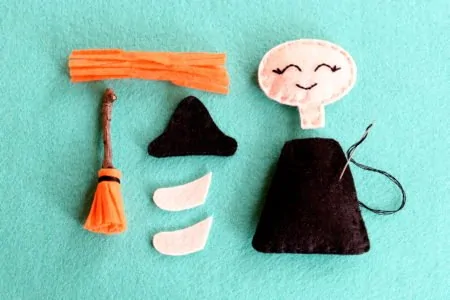As your bundle of cosmic dust takes shape, you may wish to bestow on them a name that means peace.
We know the importance of finding the best option for your baby, even amid a chaotic world and stressful daily life. That’s why we’ve lovingly handcrafted this list of names meaning peace to ensure your search for inspiration is relaxing.
From Amity to Zen, each calming pick has the potential to bring light and love into your home. So take a breath and enjoy this moment as you quietly browse these peaceful names.
100 Beautiful Names Meaning Peace
Chill out with our creative compilation of names that mean peace.
Aang
Aang is widely recognized in the West as the main character of Nickelodeon’s Avatar: The Last Airbender. This isn’t just a made-up name, though. Aang is a combination of the Chinese characters for “ān” (peace/quiet), and “áng” (raise/lift). It is used in Southeast Asia but also has roots in the Sudanese language, meaning “older brother.”
- Origin: Chinese
- Meaning: Rising peace, peaceful soaring
- Pronunciation: ANG
- Variations: Ang
- Popularity: Aang is prevalent in Indonesia, Cambodia, and Malaysia.
Aarav
Aarav is Indian, originating with the Hindu Sanskrit language and writing system. It comes from the root “rav,” which relates to “a musical note” and “peace.” Parents looking for exotic names that mean peace with music connotations might find Aarav quite charming. According to popularity stats, many Anglophones are already taking note of Aarav.
- Origin: Indian
- Meaning: Peaceful melody, calm noise, rustling sound
- Pronunciation: AH-ruv, AH-rav
- Namesakes: Aarav Kumar, the son of Indian-born Canadian TV personality Akshay Kumar. Aarav Singh, an Indian actor. Aarav Chowdhary, an Indian actor and model.
- Popularity: Aarav first placed on U.S. and English charts in 2008 at 926th and 867th, respectively. In 2022, it ranked 667th in the U.S. but fell off in England and Wales after 2021.
Absalom
Absalom has a wonderful meaning stemming from the Hebrew elements “’av” (father), and “shalom” (peace). Although the biblical figure Absalom was blessed with physical beauty and royal standing as one of King David’s sons, his life was fraught with drama. Despite this, Absalom could be a hit. Such a cool-sounding moniker is a strong contender among names meaning peace.
- Origin: Hebrew
- Meaning: My Father (God) is peace
- Pronunciation: AB-suh-lum, AB-suh-lom, AB-shuh-lom
- Variations: Avshalom
- Namesakes: Absalom Jones, an African-American abolitionist, and clergyman. Absalom Robertson, an American politician. Absalom, the third son of King David of Israel.
- Popularity: Absalom is most common in Israel and South Africa.
Alafia
Alafia comes from Nigeria and is of Yoruba origin. It’s primarily used for girls but on occasion also sees use for boys. Not only is Alafia easy to say, with its musical intonation, but it’s also a delight! For added sweetness, try out adorable nicknames like Afia (uh-FEE-uh), Fi-Fi (FEE-FEE), and Fia (Fee-uh).
- Origin: Nigerian
- Meaning: Peace
- Pronunciation: a-LA-fee-a
- Popularity: With about 535 bearers worldwide, Alafia is the most popular in Nigeria.
Alin
Alin comes from the Romanian root “alina,” meaning “to soothe.” It’s also considered a male form of the diminutive Alina from Adelina (noble) or Albina (white). Alin also has German, Chinese, and Hebrew roots, giving it other meanings such as “noble type” and “mountain.” It seems almost every notable Alin plays football, making it perfect for an especially active child.
- Origin: Romanian, Armenian
- Meaning: Soothing, light-bearer
- Pronunciation: a-LEEN
- Variations: Aalin
- Namesakes: Alin Moldoveanu, a Romanian sport shooter and Olympic champion. Alin Toșca, a Romanian professional football player. Alin Șeroni, a Romanian professional football player.
- Popularity: Alin is most popular in Romania, where it last ranked 37th in 2009. It’s vintage in France, placing 355th in 1948 for the final time.
Amani
Amani is a female option meaning “peace” in Swahili and “faith” in the Ethiopian Tigrinya language. In Arabic, Amani is also considered feminine and is mentioned in the Quran. Despite this, Amani is mainly used for boys in some African countries. If you prefer popular peace names, Amani makes the charts in the U.S., England and Wales, and the Netherlands.
- Origin: African, Arabic
- Meaning: Peace, hope, wishes
- Pronunciation: uh-MAH-nee, a-MA-nee
- Namesakes: Amani Toomer, an American former (gridiron) football player. Amani Lewis, an American artist. Amani Al-Khatahtbeh, an American author, activist, and tech entrepreneur.
- Popularity: In 2022, Amani placed 581st on the U.S. charts and 363rd in the Netherlands for girls. It doesn’t make the charts for boys.
Amari
Amari is multicultural, with various origins. In Sanskrit, it means “eternal” and stems from Ammar, which is rooted in the Arabic “‘amara,” meaning “to live long.” This isn’t to be confused with the Arabic “qamar” (moon). In Latin, it means “to be loved,” while in the Yoruba language, it means “strength.” For the Japanese, Amari is more often a family name.
- Origin: Arabic, Hebrew, Latin, Japanese
- Meaning: Immortal, promised by God, beloved, surplus
- Pronunciation: uh-MA-ree, uh-MAH-ree, A-MA-REE
- Namesakes: Amari Burney, an American (gridiron) football player. Amari Bailey, an American college basketball player. Amari Morgan-Smith, an English professional (association) football player.
- Popularity: In 2022, Amari ranked 174th for boys in the U.S. and 320th for girls. In the same year, it placed 174th for boys and 320th for girls in England and Wales.
Amity
Amity is fairly new but no less sweet. It’s an English word for friendship, used at one point by the Puritans as a virtue name. Ultimately though, it’s taken from the Latin word “amicitia” (friendship). As a parent, it’s common to desire a peaceable and harmonious relationship with your child. Solidify that wish with a pleasant pick like Amity.
- Origin: English, Latin
- Meaning: Friendship, harmony
- Pronunciation: A-mih-tee, A-muh-tee, A-muh-dee
- Namesakes: Amity Gaige, an American novelist. Amity Dry, an Australian singer-songwriter and reality show contestant. Amity Rockwell, known as Amity Gregg, an American professional racing cyclist.
- Popularity: Amity is most popular in the U.S. but doesn’t make the top 1,000 names there.
Angel
Angel implies an atmosphere of peace through its heavenly association. This word is used throughout the Bible as the Greek “ag’gelos,” meaning “messenger.” Angel is treated as a masculine option in Spanish-speaking territories and is used for girls in England and Wales, the Netherlands, and New Zealand. In the U.S., Angel is gender-neutral.
- Origin: Greek
- Meaning: Messenger (from God), (divine) messenger
- Pronunciation: AYN-juhl, AN-zhahl, ANG-khel
- Variations: Ángel, Àngel, Angelo, Angela, Angelus
- Namesakes: Angel Olsen, an American singer-songwriter. Angel McCoughtry, an American professional women’s basketball player. Ángel Cabrera, an Argentine professional golfer.
- Popularity: In 2022, Angel took the 62nd spot on the U.S. charts for boys and the 521st spot for girls.
Aquene
Aquene resembles the gemstone aquamarine and the phrase “a queen.” Despite its fitting appearance, its unique pronunciation stems from its Native American roots. Aquene is Lenape (the name and language of the indigenous Delaware tribe). Honor your ancestry or shine a spotlight on this intriguing cultural gem when you choose Aquene.
- Origin: Native American
- Meaning: Peace
- Pronunciation: a-KIN, ah-KEE-neh
- Variations: Aquine
- Namesakes: Aquene Freechild, an American writer and activist.
- Popularity: Aquene shows up primarily in Brazil and the U.S. but doesn’t crack the charts in either place.
Axel
Axel is a youthful Scandinavian and German diminutive that jumps out from the crowd of peaceful names. Originating from the Old Norse Asketill (god/kettle), denoting a sacrificial cauldron, it became conflated with Absalom (“my Father is peace”). Nowadays, Axel is an international sensation. This boyish, upbeat choice has our vote of peace!
- Origin: Scandinavian, German
- Meaning: My Father (God) is peace
- Pronunciation: AKS-suul, AK-sehl, A-ksl
- Variations: Axl, Aksel, Axelle
- Namesakes: Axel Witsel, a Belgian (association) football player.
- Popularity: In 2022, Axel placed 77th in the U.S., 31st in Sweden, and 405th in the Netherlands.
Bake
First impressions of Bake might serve up some odd looks. Turn the implications of freshly baked goods into a lesson in language and culture with this Basque epithet meaning “peace.” Originally, Bake was the Basque version of Paz (peace). Although it also became the female equivalent of Bako (Basque for Bacchus), Bake is still strongly associated with tranquility.
- Origin: Basque
- Meaning: Peace, tranquility, serenity
- Pronunciation: BA-kehy
- Variations: Bakea
- Popularity: Bake has about 46,691 global bearers.
Barış
Barış is a tough Turkish option in more ways than one. At least when it comes to official purposes, the dotless ı and S-cedilla may be a hassle for many Westerners. Some may choose to avoid this entirely and simply write it as Baris. Either way, Barış emanates powerful but gentle giant vibes.
- Origin: Turkish
- Meaning: Peace
- Pronunciation: buh-RISH, BAH-rish
- Namesakes: Barış Manço, a Turkish musician, singer, actor, TV producer, and host. Barış Akarsu, a Turkish-Anatolian rock singer and actor. Barış Esen, a Turkish chess grandmaster.
- Popularity: Barış peaked in Turkey at 21st in 1991 and was 88th in 2021.
Callum
Callum is a classic that still feels new and shiny. It’s the Scottish-Gaelic form of Columba (from Saint Columba), meaning “dove.” This is where the easy-on-the-ears Callum gets its equally pleasant associations with serenity, grace, and love. Is it any wonder that Callum and its many variants are so widely beloved?
- Origin: Scottish, Latin
- Meaning: Dove
- Pronunciation: KA-lum, KAY-lum
- Variations: Kallum, Calum, Kalum
- Namesakes: Callum Barker, an Australian motorcycle racer. Callum Brodrick, an English cricketer. Callum Wilson, an English professional (association) football player.
- Popularity: Callum first ranked in the U.S. at 974th in 2008 and placed 273rd in 2021.
Clemens
Clemens is originally Latin but became the form used in Scandinavia, Germany, and Dutch territories. Despite this, its popularity has declined over the years, and it last ranked in 2014 at 55th in Austria. With moderate demand, this could be the perfect opportunity for your baby to steal the show. Besides, Clemens sounds much sharper than the English form, Clement.
- Origin: Latin, Dutch
- Meaning: Merciful, gentle
- Pronunciation: KLEE-menss, KLEH-munz
- Variations: Clements, Klemens
- Namesakes: Clemens Krauss, an Austrian music conductor and opera impresario. Clemens Rehbein, a German vocalist, and guitarist for the band Milky Chance. Clemens Brentano, a German poet and novelist.
- Popularity: Clemens placed 984th in 1925 on U.S. charts but hasn’t ranked since.
Clementine
Clementine is as sweet as the citrus fruit it’s taken from — the very same fruit named in honor of the French missionary Clément Rodier. Clementine has a Southern air, possibly due to the Western folk song by Percy Montross, Oh My Darling Clementine. This sugar-sweet girly epithet has seen a resurgence in modern times.
- Origin: English, French, Latin
- Meaning: Merciful, mild
- Pronunciation: KLEH-men-teye-n, KLEH-men-teen
- Variations: Clémentine
- Namesakes: Clementine Paddleford, an American food writer. Clementine Churchill, an Englishwoman and the wife of Sir Winston Churchill. Clementine Ford, an American actress.
- Popularity: Clementine peaked in the U.S. at 444th in 1911 and ranked 558th in 2022.
Colm
Colm derives from “colum” or “columb,” the Old Irish words for “dove,” and diminutive Irish forms of the Latin Columba (dove). Colm is an unassuming classic that speaks to the purity and innocence of the bird it represents. Despite its fall in popularity, we think Colm should get another chance to spread its wings. After all, simple is best!
- Origin: Irish
- Meaning: Dove
- Pronunciation: KUH-lum, KAH-lum
- Variations: Colum
- Namesakes: Colm Meaney, an Irish actor known for his role in two Star Trek TV series. Colm Feore, a Canadian actor. Colm Tóibín, an Irish novelist, journalist, critic, playwright, poet, and university chancellor.
- Popularity: Colm is most common in Ireland, where it last ranked 82nd in 2007. In England and Wales, Colm was last seen at 976th in 2003.
Columba
Columba is a Late Latin moniker most well-known for the Irish saint who bore it. Meaning “dove,” Columba is connected to the imagery and symbolism of the Holy Spirit. Give the gift of comfort to your little dove with Columba or any one of its virtuous variants.
- Origin: Latin
- Meaning: Dove
- Pronunciation: kuh-LUM-buh, koh-LOOM-ba
- Namesakes: Columba of Rieti, an Italian mystic and a sister of the Third Order of St. Dominic. Columba Bush, a Mexican-American philanthropist and former First Lady of Florida.
- Popularity: Columba is most prevalent in Mexico, with Venezuela close behind.
Colvyr
Colvyr looks like someone misspelled Clover and tried to get creative. Jokes aside, Colvyr is a modern English epithet that has appeared mysteriously. Nobody can say where it came from, although it is certainly unique! It might be related to the Irish Colum, hence the meaning “dove-like.” However, even this suggestion is debatable.
- Origin: English
- Meaning: Dove-like
- Pronunciation: KOL-vur
- Popularity: Colvyr does not appear in the top 1,000 names for any country.
Concordia
Sophisticated Concordia looks like something out of a fairytale. Latin for “harmony,” Concordia was the Roman goddess of harmony and peace. Concordia was once fairly popular in the Philippines but has lost much of its luster and is mostly relegated to surname status. Your little princess could rock it as a middle name, given its length.
- Origin: Latin
- Meaning: Harmony, peace
- Pronunciation: kun-KAWR-dee-uh, kon-KAWR-dee-a, kohn-KOHR-dee-a
- Variations: Konkordia
- Namesakes: Concordia Merrel, a British stage and silent film actress, photography model, and romance author. Concordia Selander (née Hård), a Swedish actress and theater manager.
- Popularity: Concordia was common in the Philippines in the early 1900s.
Damayanti
Damayanti is Hindu Sanskrit for “subduing” or “soothing.” In one Hindu Sanskrit epic, this epithet was born by a princess. Described as being so beautiful that even deities wished to wed her, Princess Damayanti heartwarmingly chose her true love over all else. With a lyrical and calming nature, Damayanti is like a dream come true for doting parents.
- Origin: Indian
- Meaning: Subduing, soothing
- Pronunciation: DA-ma-YAN-tee
- Variations: Dayamanthi
- Namesakes: Damayanti Beshra, an Indian author and Adivasi (indigenous Indian tribes) researcher. Damayanti Joshi, an Indian Kathak dancer. Damayanti Tambay, an Indian badminton player and wife of Flt lt V. V. Tambay.
- Popularity: Damayanti has over 105,000 bearers worldwide, mostly concentrated in India.
Dove
Dove is an English word for a (usually white) bird of the Columbidae family. Derived from the Old English “douve,” it ultimately goes further back to the Old Norse “döfa.” In biblical accounts, the Holy Ghost is even described at Jesus’ baptism as descending “…like a dove.” Like its avian namesake, Dove symbolizes innocence, purity, and peace with God.
- Origin: English
- Meaning: Dove (bird)
- Pronunciation: DUV
- Namesakes: Dove Cameron, born Chloe Celeste Hosterman, an American singer and actress. Sir Dove-Myer Robinson, an American mayor with the longest tenure in Auckland City.
- Popularity: Dove is most popular in the U.S. but doesn’t crack the top 1,000 names.
Eir
Eir is one of those names that mean peaceful with an “air” of mystery. It comes from a Norse goddess who presided over healing and medicines. Thus, her moniker meant “protection,” “mercy,” or “peacefulness.” With Eir being so rare, it feels extra special. And for an extra special son or daughter, what could be more fitting?
- Origin: Norse
- Meaning: Mercy, protection
- Pronunciation: AY-r
- Variations: Eira
- Namesakes: Eir Aoi, a Japanese singer.
- Popularity: Eir is most common in Norway, Iceland, and the U.S.
Eirini
Eirini comes from the Greek root “eirēnē,” meaning “peace.” In Greek myth, Eirene was a beautiful goddess, one of the Horae (or Horai), and the personification of peace. Once popular in Greece, Eirini has become more common in Cyprus, though you can also find it in use throughout Europe. Let your daughter prosper under the serenity of Eirini.
- Origin: Greek
- Meaning: Peace
- Pronunciation: ee-REE-nee
- Variations: Eiríni, Irini
- Namesakes: Eirini Aindili, a Greek rhythmic gymnast and Olympic bronze medalist. Eirini Georgatou, a Greek tennis player. Eirini Kavarnou, a Greek competitive swimmer.
- Popularity: Eirini is used most often in Greece, making the top 20 names there at one point.
Ekecheiria
Ekecheiria was a deity and the personified spirit of armistice and cessation of hostilities in Greek myth. The Olympic Truce, established in the 9th-century BC in Greece, was also called Ekecheiria in honor of her. For parents who like the appearance of Ekaterina but want to stick to the theme of peace, Ekecheiria is a gorgeous Greek look-alike.
- Origin: Greek
- Meaning: Armistice, truce
- Pronunciation: EH-keh-hee-REE-ah
- Variations: Ekekheiria, Ecechiria
- Popularity: Ekecheiria does not show up on any popularity charts.
Femke
Femke is a feminine diminutive of the Frisian Femme, which is masculine. Ultimately, these both stem from the Germanic Fridumar or Friduman, which includes the Old German element “fridu,” meaning “peace.” For some English speakers, this might have an odd and slightly neutral appearance. But Femke is undoubtedly and unapologetically girly.
- Origin: Dutch, Frisian
- Meaning: Peace
- Pronunciation: FEM-kuh
- Variations: Famke
- Namesakes: Femke Meines, a Dutch singer and actress. Femke Hiemstra, a Dutch painter. Femke Van den Driessche, a Belgian mountain biker, cyclo-cross, and road racing cyclist.
- Popularity: Femke is most common in the Netherlands, ranking 144th in 2022 from 23rd in 2008.
Fen
Fen is a Frisian diminutive of the Gothic Ferdinand, including the Old Germanic “fridu” (peace). This adorable option is also Chinese. From the Chinese character for “fēn,” it’s feminine and means “aroma,” “fragrance,” or “perfume.” From the character “fèn,” it’s masculine and means “strive” or “exert.” Anglophones will recognize Fen as the English term for “marshland.”
- Origin: Frisian, Chinese
- Meaning: Peace, perfume, fragrance
- Pronunciation: FEN, FUN
- Variations: Fenne, Fēn
- Namesakes: Fen Yao, a Chinese international women’s badminton player.
- Popularity: Fen is most popular in China as a given and family name.
Ferdinand
Ferdinand is a Latinization of a Gothic moniker. It may be composed of the Germanic elements “friþus” (peace), “frith” (protection), or “farþa” (journey), and “nanþa” (boldness/daring). Munro Leaf’s children’s book, The Story of Ferdinand, told of a gentle bull who preferred flowers over fighting. Although the book didn’t increase Ferdinand’s popularity, it earned it a spot in popular culture.
- Origin: Gothic, Germanic
- Meaning: Peaceful journey, bold peace, courageous protector
- Pronunciation: FURD-ih-nahnd, FURD-uh-NAND
- Variations: Fernando, Ferdinanths, Frithunanths, Fernán, Hernando
- Namesakes: Ferdinand Bol, a Dutch painter, etcher, and draftsman. Ferdinand Zylka, a German basketball player. Ferdinand I, or Ferdinand of Antequera, a 14th-century king and duke.
- Popularity: Ferdinand placed 986th in 1971 before falling off U.S. charts, but in the Czech Republic, it came 163rd in 2016.
Frederick
Frederick is the English form of the German Friedrich, a combination of “fridu” (peace) and “rih” (ruler/king). Borne by rulers and saints over the ages, Frederick has gained a classic and noble reputation. Though it seems outdated nowadays, it’s still going strong on U.S. charts. In Australia and Canada, Frederick is old news!
- Origin: German, English
- Meaning: Peaceful ruler
- Pronunciation: FREH-drihk, FREH-duh-rihk
- Variations: Fredrick, Frederic, Fredric, Fredrik, Friedrich, Friduric
- Namesakes: Frederick Douglass, a formerly enslaved American turned abolitionist leader, orator, writer, and statesman. Frederick Gwynne, an American actor, artist, and author.
- Popularity: In 2022, Frederick was 474th in the U.S. and 93rd in New Zealand. In 2021, it placed 61st in England and Wales.
Frida
Frida is a diminutive of names beginning with the Germanic element “fridu” (peace). Meanwhile, its Scandinavian roots trace back to the Old Norse “fríðr” (beautiful/beloved). Despite diminished popularity in Sweden, Frida took off elsewhere. In 2021, it placed 18th in Denmark and 616th in England and Wales. In 2020, it ranked for the first time in Mexico at 124th.
- Origin: Germanic, Scandinavian
- Meaning: Peace
- Pronunciation: FREE-duh, FREE-dah
- Variations: Freda, Frieda, Freida
- Namesakes: Magdalena Carmen Frida Kahlo y Calderón, better known as Frida Kahlo, a renowned Mexican painter. Frida Gustavsson, a Swedish model and actress.
- Popularity: Frida peaked on U.S. charts in 2003 at 648th and placed 980th in 2021. In 2022 it ranked 6th in Norway.
Fridolf
Fridolf combines the loyalty and kinship of wolves with elements of peace. From the Old High German “fridu” (peace) and the Gothic “vulfs” (wolf), Fridolf is cool in more ways than one. The world needs more warriors for peace, and your brave Fridolf could be the next anti-violence advocate.
- Origin: German
- Meaning: Wolf of peace, peaceful wolf
- Pronunciation: FREE-dolf
- Variations: Fridulf
- Namesakes: Fridolf Jansson, a Swedish politician. Johan Fridolf Hagfors, a Swedish newspaper publisher, music critic, and composer. Fridolf Rhudin, a Swedish actor and comedian.
- Popularity: Fridolf is most prevalent in Finland and Sweden but is quite rare worldwide.
Fridumar
Fridumar derives from the Old High German elements “fridu,” meaning “peace,” and “mari,” meaning “famous.” Even we must admit that Fridumar is unusual — at least in non-Germanic territories. Germany holds some interest in this epithet, although it doesn’t make the charts there. Fridumar might have been more prevalent in a bygone age, but it’s extremely rare nowadays.
- Origin: Germanic
- Meaning: Famed peace
- Pronunciation: FREE-doo-maar
- Variations: Fridemar
- Popularity: Fridumar doesn’t appear on popularity charts.
Fritz
Fritz is a zippy nickname derived from the Old German Friedrich, composed of “fridu” (peace) and “rih” (ruler/king). As it only bears the first element, it can simply mean “peaceful” or “peace.” Those in the U.S. might associate it with the slang phrase “on the fritz,” indicating a device isn’t working. However, the Germanic Fritz is likely unrelated.
- Origin: German
- Meaning: Peaceful ruler, peaceful
- Pronunciation: FRIH-ts, FREE-ts
- Namesakes: Fritz Leiber Jr., an American fantasy, horror, and science fiction author. Fritz Zwicky, a Swiss astronomer. Fritz London, a German physicist and university professor.
- Popularity: Fritz last ranked on U.S. charts in 1968 at 925th and was last seen in 1929 at 17th in Germany.
Galen
Galen is the modern form of the Greek Galenos, and gives tribute to the philosopher and surgeon, Galen (Claudius Galenus) of Pergamon. Conservationists like Galen Clark and philanthropists like Galen Stone continue the chain of altruism behind this moniker. But the amicable atmosphere around Galen begins with its Greek root, “galene,” meaning “calm.” See the good in Galen.
- Origin: Greek
- Meaning: Calm
- Pronunciation: GAY-lun
- Variations: Galenus, Galenos
- Namesakes: Galen Clark, a Canadian-American conservationist and writer. Galen Rupp, an American award-winning long-distance runner. Galen Stone, an American financier and philanthropist.
- Popularity: Galen disappeared from the U.S. top 1,000 names after ranking 917th in 1996.
Godfrey
Parents with a taste for adventure and glory will be more than satisfied with Godfrey. Straight out of the Viking Age, Godfrey is an Anglicized form of the Old High German Godafrid or Godefrid. Despite its intense vibe, Godfrey means “peace/protection of God.” At the very least, you can feel relaxed knowing that God has your son’s back.
- Origin: English, German
- Meaning: God’s peace, God’s protection
- Pronunciation: GOD-fray, GOD-free
- Variations: Godefroy, Godefrid, Gottfried, Godefroi
- Namesakes: Godfrey Danchimah Jr., an American comedian, impressionist, and actor. Godfrey Gao, a Taiwanese-Canadian model and actor. Sir Godfrey Hounsfield, an English electrical engineer, and Nobel laureate.
- Popularity: Godfrey peaked in the U.S. at 657th in 1906 and ranked for a final time at 937th in 1948.
Harmony
Harmony is as pleasant as it sounds. This Anglicized form of the Greek Harmonia comes from the goddess of the same name. In her mythology, Harmonia could unite people, presiding over happy marriages, siblings, and harmony in general. Harmony isn’t some new trend, though. Its usage dates back to the 1800s and gradually grew in popularity.
- Origin: English, Greek
- Meaning: Harmony, unity, concord
- Pronunciation: HAA-muh-nee, HAAR-muh-nee
- Variations: Harmonia
- Namesakes: Harmony Ikande, a Nigerian professional football player. Harmony James, an Australian singer-songwriter. Harmony Tan, a French professional women’s tennis player.
- Popularity: Harmony appeared on U.S. charts at 793rd in 1975, and after a decline between 1982 and 1999, it rocketed to 215th in 2022.
Haven
Haven is relatively new. It has a warm and cozy feel, likely stemming from its etymology. Ultimately, it derives from the Old English “hæfen,” later becoming the modern English “haven” we know and love. It means “safe place,” “harbor,” or “sanctuary.” Every parent wants to wrap their baby up safe and sound. Why not express your care with the delightful Haven?
- Origin: English
- Meaning: Sanctuary, harbor, safe place
- Pronunciation: HAY-vn, HAY-vin, HAY-vun
- Namesakes: Haven Denney, an American award-winning pair skater. Haven Barlow, an American politician. Haven Kimmel, an American novelist and poet.
- Popularity: Haven debuted in the U.S. top 1,000 names in 1996 at 939th, going on to place 285th in 2022.
Hé
English speakers might find Hé easy to mispronounce. Yet, this sweet Chinese option is perfect for parents who want to share their joy. Besides peace and harmony, Hé has other meanings depending on the characters used. For girls, it can mean “lotus” or “water lily.” Fittingly, Hé can also mean “celebration” — or more literally, “to cheer.” Three cheers for Hé, anyone?
- Origin: Chinese, Vietnamese
- Meaning: Peace, harmony, stream, river
- Pronunciation: HWAA, KHUU, KHWUU, HA
- Namesakes: He Long, a Chinese Communist revolutionary and a vice premier. Hé Zheng, born Hé Ma, a Chinese mariner, explorer, fleet admiral, and court eunuch.
- Popularity: Hé is most popular in China.
Heddwch
Heddwch is a Welsh masculine noun that both looks and sounds similar to the Welsh Heddwyn. It’s a tad tough for English-speakers, especially with the lack of vowels in the second half. Heddwch may not be for the faint of heart. If you take up the challenge of this highly unique word name, don’t be afraid to show it off.
- Origin: Welsh
- Meaning: Peace
- Pronunciation: HEDH-oo-KH
- Popularity: Heddwch doesn’t appear on any popularity charts.
Heddwyn
Heddwyn is composed of the Welsh “hedd” (peace) and “gwyn” (white/blessed/pure). This bardic title was granted to the early 1900s rising star in Welsh poetry, Ellis Evans. Evens died in WWI before being awarded the bard’s chair at Wales’ national poetry championship. Welsh parents began calling their sons Heddwyn to honor the tragic young poet.
- Origin: Welsh
- Meaning: Fair peace, blessed peace
- Pronunciation: HEDH-win
- Variations: Hedd Wyn
- Namesakes: Hedd Wyn, born Ellis Evans, an award-winning Welsh-language poet.
- Popularity: Heddwyn is most common in Wales and shows up to a lesser extent in England and Scotland.
Heiwa
Even in Japan, where Heiwa is most commonly found, it’s still quite rare. It can also mean “peace,” “harmony,” “even,” “flat,” or “smooth,” depending on the kanji symbols used. In the future, Heiwa might receive more attention as it has a positive meaning and a cute look. Why not kick things off and give Heiwa a try?
- Origin: Japanese
- Meaning: Peace, harmony, smooth
- Pronunciation: HAY-wah, HEH-wah
- Popularity: Heiwa is rare, with about 2,746 bearers internationally.
Hépíng
Hépíng might seem like a challenge, but stay calm. If you give it a chance, you’ll realize that this lyrical pick sounds like wind chimes — helpful for putting you at ease! It’s rooted in the Chinese elements “hé” (peace/harmony) and “píng” (level/even/peaceful). Whether you’re blessed with a boy or a girl, Hépíng could be their heart song.
- Origin: Chinese
- Meaning: Peace, harmony, even
- Pronunciation: KHUU-PEENG
- Popularity: Hépíng doesn’t show up on any popularity charts.
Humphrey
Introduced to England by the Normans, Humphrey might be a combination of the Old German elements “hun” (warrior) and “fridu” (peace). Another suggestion is that it descended from the Old English Hunfrith, composed of “hun” (bear cub) and “frith” (peace). Humphrey was popular in the 1800s, but it gets bundled with other vintage posh names these days.
- Origin: English, Germanic
- Meaning: Peaceful warrior, peaceful bear cub
- Pronunciation: HUM-free, HUM-pfree
- Variations: Humphry, Hunfrid, Hunfrith
- Namesakes: Humphrey “Bogie” Bogart, an American Hollywood film and stage actor. Humphrey Lyttelton, an English jazz musician and broadcaster. Humphrey Searle, an English composer, and writer.
- Popularity: In 2015, Humphrey placed 996th on charts in England and Wales for the first time but hasn’t appeared since.
Irenaeus
Irenaeus is a Latinization of the Greek Eirenaios, meaning “peaceful.” If you’ve been searching for a dignified pick among these peaceful names, consider Irenaeus. The most well-known bearer of this epithet was a 2nd-century Greek bishop. Since it’s still so rare, your son could potentially be the only other Irenaeus in history books.
- Origin: Greek
- Meaning: Peaceful
- Pronunciation: ee-ree-NAY-os, ee-rih-NAY-us
- Variations: Eirenaios, Ireneus
- Namesakes: Irenaeus, a 2nd-century Greek saint and bishop.
- Popularity: Irenaeus is most prevalent in Nigeria and the U.S. but doesn’t make the top 1,000 names in either country.
Irene
Irene is timeless and quite beloved worldwide. It appears on popularity charts in England, Canada, France, Spain, Scandinavia, and Australia. That’s an impressive feat! Irene comes from the Greek Eirene, itself from “eirēnē” (peace). Eirene was a Greek goddess who personified peace, sometimes depicted holding the infant Plutus, the god of plenty. When in doubt, give Irene a shout.
- Origin: Greek
- Meaning: Peace
- Pronunciation: EYE-reen, EYE-ree-nee
- Variations: Irina, Eirene, Irène
- Namesakes: Irene Dunne, an American actress, singer, and philanthropist. Empress Irene Sarantapechaina of Athens, an 8th-century Byzantine empress consort.
- Popularity: In 2022, Irene ranked 667th on U.S. charts and is the 197th most common name in the world.
Irie
Irie is the most laid-back of all our names that mean peace. It’s the Jamaican Patois version of the Swahili phrase “Hakuna matata.” It really does mean “no worries” and “be at peace.” In more casual speech, it can mean “chill,” “good,” or “cool.” In Japanese, Irie means “blessing” or “favor,” so even across the ocean, it remains on-brand.
- Origin: Jamaican, Japanese
- Meaning: At peace, blessing
- Pronunciation: EYE-ree, EE-REE-EHY
- Namesakes: Irie Love Taylor, an American R&B Reggae singer and songwriter.
- Popularity: Irie is most common on the Ivory Coast and in the U.S.
Jeffrey
Jeffrey is the form of Geoffrey introduced to England by the Normans during the Middle Ages. Initially, from Frankish roots, it consists of the Germanic “gawia” (territory) or “walha” (foreign) and “fridu” (peace). In the U.S., Jeffrey is the most common version of this moniker, so Jeff is likely the most common nickname.
- Origin: English
- Meaning: Divine peace, foreign peace
- Pronunciation: JEHF-ree
- Variations: Jeffry, Joffrey, Geoffrey, Geoffroy, Geffrey
- Namesakes: Jeffrey Goldblum, an American actor and musician. Jeffrey Bridges, an American actor. Jeffrey Bezos, an American entrepreneur, CEO of Amazon, and a commercial astronaut.
- Popularity: Jeffrey ranked 452nd in 2022 on U.S. charts but fell off in England and Wales after placing 931st in 2013.
Jemima
Jemima was popular in the U.S. during the 1800s but fell out of favor by the 1900s. It stems from the Hebrew girl name Yəmīmā or Yemimah. In the Bible, the first of Job’s daughters was called Jemimah, another spelling variant. She and her two sisters were considered the most beautiful women in Uz.
- Origin: Hebrew
- Meaning: Dove
- Pronunciation: juh-MEYE-muh, dzh-MEYE-muh
- Variations: Jemimah, Gemima
- Namesakes: Jemima Blackburn, a Scottish painter. Jemima Kirke, a British-American artist, actress, and director. Jemima Goldsmith, an English heiress, screenwriter, producer, and company founder.
- Popularity: Jemima first ranked on charts in England and Wales in 1996 at 228th, peaked in 2008 at 157th, and ranked 371st in 2021.
Jonah
Jonah stems from the Hebrew Yonah, meaning “dove.” The biblical figure, Jonah, was a prophet who ran from his God-given assignment in Nineveh. After boarding a ship and encountering a storm, he was swallowed by a large fish. His story is one of the more memorable Bible accounts. This makes Jonah a nautical addition to your top ten peace names.
- Origin: Hebrew
- Meaning: Dove
- Pronunciation: JOH-nuh
- Variations: Jonas, Jonasz, Yonah, Ionas
- Namesakes: Jonah Hill Feldstein, an American actor, and filmmaker known for his comedic roles. Jonah Goldberg, an American columnist, author, political analyst, and commentator.
- Popularity: In 2020, Jonah peaked at 128th in the U.S., and in 2021, it peaked in England and Wales at 136th place.
Kazumi
Kazumi is a combination of the Japanese kanji for “kazu,” meaning “harmony/peace” or “one,” and “mi,” meaning “beautiful.” Depending on the choice of kanji, it can also be read as a “peaceful sea.” Kazumi is a gentle reminder of the stillness of the open sea, making it a breath of fresh air.
- Origin: Japanese
- Meaning: Beautiful peace, beautiful one
- Pronunciation: KA-ZOO-MEE
- Namesakes: Kazumi Abe, a Japanese competitive bobsledder. Kazumi Kishimoto, a Japanese competitive figure skater. Kazumi Kazui, a Japanese manga artist.
- Popularity: Kazumi is the most popular in Japan, usually in the top 1,000 names.
Kazuo
Kazuo uses the Japanese kanji for “kazu,” meaning “one” or “harmony,” and “o” (male/man). So beyond “harmonious man,” Kazuo can mean “first man” or “first son.” This moniker is so popular in Japan that it snowballed into the mainstream, even appearing on U.S. popularity charts. If this is your first boy, Kazuo might just be perfect.
- Origin: Japanese
- Meaning: First son, harmonious man, peaceful man
- Pronunciation: KA-ZOO-OH
- Namesakes: Kazuo Oka, a Japanese voice actor. Kazuo Funaki, a Japanese enka singer and an actor for stage, film, and TV. Kazuo Azuma, a Japanese professional shogi player.
- Popularity: Kazuo is most prevalent in Japan and ranked on U.S. charts three times, peaking at 933rd in 1921.
Kazuto
Despite its similarity to Kazuo, Kazuto isn’t the most popular among Japanese boy names that mean peace. It’s composed of the kanji for “peace,” “harmony,” or “one,” and the character for “human” or “person.” In Japan, a child’s name influences their life and future. This exotic epithet could become a guiding force if you hope for your son to be a peaceful person.
- Origin: Japanese
- Meaning: The first one, peaceful person, harmonious
- Pronunciation: KA-ZOO-TOH
- Namesakes: Kazuto Seki, a Japanese competitive sailor, and an Olympic bronze medalist. Kazuto Ioka, a Japanese professional boxer and a boxing world champion.
- Popularity: Kazuto is the most popular in Japan and has about 4,259 bearers globally.
Levi
Levi is a classic that feels modern. Loved by parents worldwide, this biblical pick won’t go out of style soon. Of the men called Levi in the Bible, two are well known. The first was Jacob’s third son by, Leah, and the second was one of Jesus’ apostles, also called Matthew. Levi’s meaning can be fully expressed as “harmoniously joined.”
- Origin: Hebrew
- Meaning: Joined, adherence
- Pronunciation: LEE-veye
- Variations: Leui, Lewi, Leevi
- Namesakes: Levi Coffin, an American Quaker, Republican, abolitionist, farmer, and businessman. Levi Miller, an Australian actor, and model who starred in the 2015 movie Pan.
- Popularity: Levi has ranked on U.S. charts since 1900 and peaked at 12th in 2021 and 2022.
Malu
Malu has a laundry list of etymologies. Most relevant is the Hawaiian interpretation, which denotes a “bringer of peace.” In Chinese, the character “mâlù” means “red deer.” The Portuguese origin renders Malu a diminutive of Maria Luísa, which combines Maria from Mary or Miriam, and Luisa, ultimately from Ludwig. Malu is also a German nickname for Maria or Marie.
- Origin: Hawaiian, Portuguese, Chinese
- Meaning: Peace, protection, red deer
- Pronunciation: MA-loo, MAH-LOO
- Variations: Mâlù
- Namesakes: Malu Rocha, a Brazilian actress.
- Popularity: Malu is most prevalent in American Samoa and India.
Maluhia
Maluhia is a Hawaiian pick that uses the elements “malu,” meaning “peace” or “calm,” and “hia,” denoting “reverence” or “respect.” This encapsulates the concept of inner peace (peacefulness). Maluhia is one of the rarest peaceful names out there and feels bold but not excessive. Sow an appreciation for peace in your baby’s heart with Maluhia.
- Origin: Hawaiian
- Meaning: Peacefulness
- Pronunciation: MA-loo-HEE-ah
- Popularity: Maluhia is most popular in the U.S., with about 15 bearers worldwide.
Manfred
Manfred is macho to the core with its combination of elements. It comes from the Old German “man,” which (you guessed it!) means “man,” and “fridu,” meaning “peace” or “security.” Though a little dated, Manfred feels quite noble. Your son will eventually grow into this masculine moniker, but nicknames like Manny and Freddy are more suitable for a baby.
- Origin: Germanic
- Meaning: Man of peace
- Pronunciation: MAN-fruhd, MAN-freht
- Variations: Manfried
- Namesakes: Manfred Wolke, a German boxer. Manfred Susskind, a South African cricketer. Manfred Gerstenfeld, an Austrian-born Israeli author.
- Popularity: Manfred made the charts in France and Germany until the 50s but lasted on the charts in Austria and the Czech Republic until the late ’80s.
Miles
Miles was introduced to England in its current form by the Normans but originally stemmed from the Germanic Milo. It’s rooted in the Slavic element “milu” (merciful/gracious) but has also been linked to the Latin word “miles” (soldier). Quite the contradiction! The popularity of the Spider-Verse movies and the protagonist, Miles Morales, have contributed to increased interest in Miles.
- Origin: Germanic, English, Latin
- Meaning: Merciful, gracious, soldier
- Pronunciation: MEYELS, MEYELZ
- Variations: Myles
- Namesakes: Miles Davis III, an influential American jazz musician, bandleader, and composer. Miles Teller, an American actor.
- Popularity: Miles peaked on U.S. charts at 55th in 2021 and 2022.
Milo
Milo derives from the Germanic “milo” (the great merciful), from the Slavic root “milu” (merciful/gracious) or “mil” (beloved/dear). Milo also has a Greek etymology from “milos” (yew flower). Some have connected it to the Latin “miles” (soldier), but this is unconfirmed. Places outside the U.S. where Milo is highly popular include France, England, Belgium, and the Netherlands.
- Origin: German, Latin, Greek
- Meaning: Merciful, gracious, soldier, yew flower
- Pronunciation: MEYE-lohw, MEYE-loh
- Variations: Milos, Mylo
- Namesakes: Milo Yiannopoulos, born Milo Hanrahan, a British political commentator and media personality. Milo Ventimiglia, an American actor with early roles in The Fresh Prince of Bel-Air and Gilmore Girls.
- Popularity: Milo disappeared from U.S. charts during the ’60s and reappeared in 2001 at 985th. It shot to 120th in 2022.
Mira
Mira is simple, stunning, and should be high on your list of names meaning peace. It’s a South Slavic diminutive of names like Miroslava and Mirjana, which contain the element “miru” (peace, world). In Hindu Sanskrit, Mira means “sea” and “kindness/goodness” in Albanian. Mira is also Latin for “admirable/wonderful” and Persian for “female ruler/female leader.”
- Origin: Slavic, Albanian, Latin, Indian
- Meaning: Peace, goodness, wonderful, sea
- Pronunciation: MEE-ruh, MEE-ra, MIH-ruh
- Variations: Meera
- Namesakes: Mira Sorvino, an award-winning American actress. Mira Furlan, a Yugoslavian actress and singer. Mira Kuisma, a Finnish ice hockey coach and former ice hockey player.
- Popularity: Mira peaked in the U.S. at 454th in 2019. In 2022, it was 102nd in the Netherlands and 152nd in Poland.
Miro
Miro comes from the Slavic root word “mir/miru,” meaning “peace” or “world.” It’s a masculine diminutive of names like Miroslav and Vladimir, which contain this element. Use Miro as a distinctive, standalone option, or if you feel it’s too short, pair it with a longer name.
- Origin: Croatian, Slovenian
- Meaning: Peace
- Pronunciation: MEE-roh, MEE-rohw
- Namesakes: Judah Miro Tapert, the son of New Zealand actress Lucy Lawless. Miro Kačić, a Croatian linguist. Miro Varvodić, a Croatian professional football player.
- Popularity: In Finland, Miro last ranked 44th in 2015.
Miroslav
Miroslav is popular in Slavic territories, likely because it comes from the Slavic elements “miru” (peace, world) and “slava” (glory/fame). In a fuller sense, Miroslav means “one who achieves glory through peace.” Most of the nicknames for Miroslav — and there are many — are uncommon in the West. The best options for English-speaking parents are Miro and Miros.
- Origin: Slavic
- Meaning: One who celebrates peace, peaceful glory
- Pronunciation: MEE-roh-slow, MEE-ruh-SLAAV, MyEE-roh-slaf, MEE-ro-slaav
- Variations: Miroslava, Miroslaw
- Namesakes: Miroslav Cerar, a Yugoslavian gymnast, and a European, Olympic, and world champion.
- Popularity: Miroslav ranked for a final time on the charts in the Czech Republic at 43rd in 2016.
Na’im
Let’s clear the air about Na’im. The first vowel sound (NA) is stressed and elongated. Once you’ve mastered the pronunciation, Na’im seems a lot less complicated. It comes from the Quranic root N-Ain-M, meaning “soft/smooth,” and in reference to the mind, meaning “peaceful/serene.” For parents who want to avoid the apostrophe in the middle, choose an alternative spelling.
- Origin: Arabic
- Meaning: Tranquil, content, serene, smooth
- Pronunciation: NA-ihm
- Variations: Naim, Naaim, Naime
- Namesakes: Naim Süleymanoğlu, a Bulgarian-born Turkish Olympic weightlifter. Na‘īm ibn Mūsā, an Israeli mathematician of the Islamic Golden Age.
- Popularity: Na’im doesn’t show up on U.S. popularity charts.
Noah
Tried and true, Noah is another nautical pick in our list of peaceful names. In the Bible, Noah and his family built a massive Ark to survive the Great Flood. While the male version of Noah comes from “No’ach” (repose/rest), in Hebrew, the feminine form is written as No-ah’. In English, both are spelled and pronounced the same way.
- Origin: Hebrew
- Meaning: Rest, repose, consolation, motion
- Pronunciation: NOH-uh
- Variations: No’ah
- Namesakes: Noah Cyrus, an American singer and actress. Noah Schnapp, an American actor known for his role in Netflix’s Stranger Things. Noah “Thor” Syndergaard, an American professional baseball player.
- Popularity: Noah ranked 1st in the U.S. top 1,000 names from 2013 to 2016 and placed 2nd from 2017 to 2022.
Oliver
Oliver may have many roots. It means “olive/olive tree,” possibly from the French word “olivier” or the Latin “olive/oliva.” It might also trace its origins back to the Frankish Alawar, a combination of the elements “alls” (all) and “wars” (cautious/aware) or “wards” (guard). Oliver has also been tied to the Old Norse Áleifr, meaning “ancestor’s descendent.”
- Origin: Latin, Old Norse
- Meaning: Olive tree, ancestor’s descendent
- Pronunciation: OL-ih-vuh, AH-lih-vur
- Variations: Olivier
- Namesakes: William Oliver Stone, an American film director, producer, and screenwriter. Oliver Phelps, an English actor known for his role in Harry Potter.
- Popularity: Oliver placed 3rd on U.S. charts from 2019 to 2022 and is extremely popular worldwide.
Olivia
Meaning “olive” or “olive tree” from the Latin “olive/oliva,” Olivia is associated with peace. This is because the olive branch, which symbolizes peace, was an attribute of the Greek goddess of peace, Eirene. Refined but not snobbish, sweet Olivia is on everyone’s wishlist. It appears on popularity charts from Canada to Argentina and England to Australia.
- Origin: English, Latin
- Meaning: Olive, olive tree
- Pronunciation: uh-LIH-vee-uh
- Variations: Oliva
- Namesakes: Olivia Rodrigo, an American singer-songwriter and actress. Olivia Cooke, an English actress. Olivia Anderson, a South African women’s cricketer.
- Popularity: Olivia ranked 2nd from 2014 to 2018 and 1st from 2019 to 2022 on U.S. charts.
Paccia
Paccia only has one recorded bearer as a given name. But even as a surname, it’s still rare, clocking in at about 49 worldwide bearers. Most people with this romantic last name are found in the U.S. With so little competition, your beloved bundle of joy can have Paccia all to themselves.
- Origin: Latin
- Meaning: Peace
- Pronunciation: PAK-ya, PACH-yuh
- Variations: Paccius
- Popularity: Paccia has one known bearer in Zambia.
Pacificus
Pacificus is Latin for “peacemaker” and has the same root as the English words “pacify” and “pacifier.” It stems from the Latin “pāx,” meaning “peace,” combined with “faciō,” meaning “I do” or “I make.” Put your son on the path to greatness with Pacificus. After all, a strong leader needs a strong name.
- Origin: Latin, Spanish
- Meaning: Peacemaker
- Pronunciation: pah-KEE-fee-koos, pa-SIH-fih-kus
- Variations: Pacifica
- Namesakes: Pacificus of San Severino, born Carlo Antonio Divini, an Italian Roman Catholic priest and saint. Pacífico Chiriboga, an early Ecuadorian politician. Pacifico Salandanan, a Filipino sports shooter.
- Popularity: Pacificus is most common in South Africa but rare worldwide.
Paloma
Precious Paloma has two meanings in Spanish. In the Catalan dialect, it means “butterfly,” whereas, for the rest of Spain, it means “dove.” In both appearance and meaning, it feels similar to the Latin-derived English, Pamela, meaning “all-sweetness.” Now that we think about it, Paloma and Pamela would be perfect for a sister duo.
- Origin: Spanish, Catalan
- Meaning: Dove, butterfly
- Pronunciation: pa-LOH-ma, puh-LOHW-muh
- Variations: Palóma
- Namesakes: Paloma Picasso, a French and Spanish fashion designer and businesswoman. Paloma San Basilio Martínez, a Spanish singer-songwriter, producer, and actress.
- Popularity: In 2022, Paloma ranked 957th in the U.S., 270th in France, and 667th in England and Wales in 2021.
Paxton
Paxton packs a punch with its modern feel, similar to other trendy names ending in “ton.” From the Old English place called “Pœcces tun” it means “peace town.” The first element, “pax,” also means “peace” in Latin. Pax was a Roman goddess of peace and the equivalent of the Greek Eirene.
- Origin: English
- Meaning: Peace town
- Pronunciation: PAKSS-tn, PAK-stun
- Variations: Pax
- Namesakes: Paxton Baker, an American businessman, entrepreneur, and philanthropist. Paxton Fielies, a South African singer and songwriter. Harry Paxton Mills, an American radio broadcaster and announcer.
- Popularity: Paxton first appeared on U.S. charts in 1997 at 940th and peaked in 2016 at 203rd.
Paz
In Spanish, Paz means “peace.” It’s a little vintage, though, having placed 396th in 1950 for the final time in Spain. In Filipino, Paz is a diminutive of feminine names like Pacencia and Pascuala. Paz is also fairly popular in Israel for both boys and girls. Since it means “gold” in Hebrew, Paz is the most valuable kind of peace.
- Origin: Spanish, Hebrew
- Meaning: Peace, gold
- Pronunciation: PAZ, PAHZ, PAS, PATH
- Namesakes: Paz Lenchantin, an Argentine-American band guitarist and vocalist. María de la Paz Campos Trigos, known as Paz Vega, is a Spanish actress.
- Popularity: In Chile, Paz ranked 85th in 2021.
Pìng
Like the chime of a bell, Ping is off to a beautiful start. Depending on the Chinese character used, it means “peaceful” or “stable.” Because it’s gender-neutral and a surname, Pìng is so common in China that it gets old. But it certainly isn’t as ordinary in the West. If you like how it sounds, place Pìng in your top three.
- Origin: Chinese
- Meaning: Peaceful, stable, duckweed
- Pronunciation: PEENG, PEEONG
- Namesakes: Ping Wu, an American TV and film actor. Ping Peng, a Chinese female basketball player. Ping Zhang, a Chinese politician.
- Popularity: Pìng is highly popular in China and is the 46th most common name globally.
Quieta
Quieta is highly uncommon but very pretty. Stemming from the Latin words “quietus/quieta” (quiet/calm/repose), it’s the perfect descriptive epithet. Paint a picture of a composed and serene little girl. This is the moment for peace and Quieta.
- Origin: Latin
- Meaning: Quiet, repose, calm
- Pronunciation: KWEYE-eh-tuh, KWEE-EHY-ta, KEE-eh-ta
- Variations: Quiéta
- Namesakes: Quieta of Dijon, a 5th-century French saint.
- Popularity: Quieta is most popular in the U.S., Trinidad and Tobago, and Liberia.
Rafiq
Rafiq has as many variants as it does meanings — from “companion/friend” to “kind/gentle” and “helper.” Parents of all backgrounds want to instill the best qualities in their children, so giving them a suitable moniker seems like a good first step. Rafiq looks and sounds cool, and caring and mild qualities are woven into its very nature.
- Origin: Arabic
- Meaning: Friend, gentle, well-mannered
- Pronunciation: ra-FEEK, ruh-FEEK
- Variations: Rafik, Rafeeq, Refik, Rafeq, Rafiqa
- Namesakes: Rafiq Zakaria, an Indian politician, and Islamic cleric. Rafiq Bhatia, an American musician, composer, guitarist, and producer. Rafiq Ahmed Jamali, a Pakistani politician.
- Popularity: Rafiq is most popular in India and Pakistan, but it made the charts in Azerbaijan at 100 in 2017.
Rahu
Rahu is an Estonian surname meaning “peace” or “reef.” Rahu or Rāhu is also Hindu Sanskrit and is a major heavenly body that presides over meteors in Hindu texts. One suggestion is that Rāhu is taken from the root “rah,” meaning “to seize” or “to snatch.” In this sense, Rahu can be interpreted as “the seizer” or “the snatcher.”
- Origin: Estonian, Indian
- Meaning: Peace, reef, star
- Pronunciation: RA-hoo, RAH-hoo
- Popularity: Rahu is mostly found in India, Pakistan, and Estonia.
Rauha
Rauha’s Finnish and Arabic meanings strike a similar chord. A “fresh breeze” against your skin or whispering through leaves can make you feel relaxed and calm. Although it’s associated with tranquility, Rauha is considered an old-fashioned name choice and hasn’t received much attention beyond the 20th-century.
- Origin: Finnish, Arabic
- Meaning: Peace, fresh breeze
- Pronunciation: ROW-hah, ROW-huh
- Variations: Rawhah
- Namesakes: Rauha Rentola, a Finnish actress.
- Popularity: Rauha is most popular in Namibia, Finland, and Sweden.
Salem
Salem is Arabic for “safety and security” from the root “salima.” Ultimately, this is derived from the Hebrew Shalem, meaning “peace,” “complete,” and “safe.” Unfortunately, it has a sinister reputation because of associations with the Salem witch trials. But it’s not all doom and gloom. Salem was also the sassy but adorable black cat from Sabrina the Teenage Witch.
- Origin: Hebrew, Arabic, English
- Meaning: Peace, safety, security, intact
- Pronunciation: SAY-lum, sehy-LEM
- Variations: Salim, Saleem
- Namesakes: Salem bin Laden, a Saudi Arabian investor and businessman. Salem Mitchell, an American model known for her facial freckles. Salem Abdulaziz Al Sabah, a Kuwaiti royal, economist, and politician.
- Popularity: Salem first appeared on U.S. charts in 2019, ranking 749th for girls and 925th for boys.
Salma
Salma is Semitic, so that it can be found in Arabic and Hebrew. In Arabic, it’s based on “salima,” from the Quranic root S-L-M. Though ultimately, it stems from the Hebrew root “salma” (mantle/robe) from “shalom” (safety/peace). Salma has a soothing sound that’s easy to love—in 2021, it ranked 699th in England and Wales and 270th in France.
- Origin: Arabic, Semitic
- Meaning: Safe and secure, pure, virtuous
- Pronunciation: SAAL-muh, SAL-ma
- Variations: Salama, Salmaa, Selma
- Namesakes: Salma bint Abdullah, a princess of Jordan. Salma Rachid, a Moroccan singer and actress. Salma Kikwete, a Tanzanian educator, activist, politician, and former First Lady of Tanzania.
- Popularity: Salma peaked on U.S. charts in 1999 at 569th and ranked 894th in 2022.
Salome
Salome was much more common during antiquity. Nowadays, it’s an oldie but a goodie — at least in the United States. It derives from an Aramaic epithet connected to the Hebrew “shalom” (peace). A notable biblical figure called Salome was a follower of Jesus and the mother of the apostles James and John.
- Origin: Hebrew
- Meaning: Peace
- Pronunciation: shuh-LOHM, sah-LOH-mee, sal-OH-may
- Namesakes: Salome Fifield (née Hocking), a Cornish novelist. Salome Chachua, a Georgian ballroom and Latin dancer and choreographer. Salome Chepchumba, a Kenyan middle-distance runner.
- Popularity: Salome peaked in the U.S. in 1903, ranking 710th, but it fell off after ranking 766th in 1908.
Serena
Many will associate Serena with the women’s tennis prodigy, Serena Williams. If your goal is encouraging your daughter to achieve her dreams, then having strong role models should do the trick. Not to mention, Serena is simply lovely. It stems from the Latin “serenus,” meaning “clear,” “tranquil,” and “serene.” Set the stage for your daughter’s success with Serena.
- Origin: Latin, Italian
- Meaning: Clear, calm, tranquil, serene
- Pronunciation: suh-REE-nah, seh-REHY-nah
- Variations: Serrena, Serenus
- Namesakes: Serena Williams, an American professional tennis player. Serena Ryder, a Canadian singer and songwriter. Serena Faggioli, stage name Serena Grandi, an Italian actress.
- Popularity: In 2021, Serena placed 61st in Italy and 389th in England and Wales. In 2022, it ranked 386th in the U.S.
Serenity
Serenity is an English term for a state of peace, stemming from the Latin word “serenus,” meaning “calm” and “clear.” This vocabulary name only recently appeared on popularity charts. In addition to cracking the top 100 names in the U.S., Serenity ranked 828th in England and Wales in 2021.
- Origin: Latin, English
- Meaning: Serenity, calmness, tranquility
- Pronunciation: suh-REHN-ih-tee
- Namesakes: Serenity Foreman, an American actress. Serenity Brown, an American actress.
- Popularity: Serenity appeared on U.S. charts in 1997 at 979th and shot up to the 96th spot in 2022.
Shanti
Shanti is similar to the English “shanty,” which can sometimes describe a song often sung by sailors. But this Shanti is Sanskrit for “quiet,” “inner peace,” and “tranquility.” It’s also short for Preshanti (peace). The lyrical connections and pleasant meaning make Shanti worth considering, so why not add it to your songbook?
- Origin: Indian
- Meaning: Peace, quiet
- Pronunciation: SHAN-tee
- Variations: Shanthi
- Namesakes: Shanti Singh of Nepal, or Shanti Rajya Lakshmi Devi, a Nepalese princess and Rani of Bajhang. Shanti Snyder, a mixed decent Japanese singer-songwriter and music TV host.
- Popularity: Shanti is most prevalent in India and Bangladesh and is fairly common worldwide.
Sheehan
Sheehan and O’Sheehan are Anglicizations of the Irish surname Ó Síodhacháin, meaning “descendant of Siodhach.” Since Siodhach means “peaceful” or “gentle,” Sheehan can be rendered a “descendent of the peaceful/gentle one.” The most famous bearer of this surname is probably the Irish actor Robert Sheehan. You’re in the clear if you need a unique first name, though.
- Origin: Irish
- Meaning: Descendant of Siodhach (the peaceful one)
- Pronunciation: SHEE-ahn, SHEE-un
- Variations: Sheehann
- Namesakes: Sheehan Kapahi, an Indian child actor and model.
- Popularity: Sheehan has about 467 international bearers.
Siegfried
Looking for a knightly moniker for your tiny warrior? Help your son keep the peace in his kingdom with Siegfried. This cool catch comes from the Old German elements “sigu” (victory) and “fridu” (peace). The hero of Germanic legends, Siegfried, also called Sigurd, was able to slay a dragon before eventually coming to a tragic end.
- Origin: German
- Meaning: Victory and peace
- Pronunciation: ZEEG-freet, ZIG-freed, SIHG-free-duu
- Variations: Sigifrid, Zygfryd
- Namesakes: Siegfried Sassoon, an English soldier, war poet, and writer. Siegfried Fischbacher, a German magician, entertainer, and half of the duo Siegfried & Roy. Siegfried Wagner, a German opera composer and conductor.
- Popularity: Siegfried doesn’t make the U.S. charts, but it’s popular in Germany and Austria.
Síocháin
From a Western perspective, Síocháin could seem like a hassle. But that’s why it’s important to understand the context of its strange spelling. Síocháin originates with the Middle Irish “síthcháin,” a combination of “síd” or “síth,” meaning “peace,” and “caín,” meaning “fair” and “gentle.” As a surname, it’s usually written as Ó Síocháin (descendant of the peaceful one).
- Origin: Irish
- Meaning: Fair peace
- Pronunciation: SHEEYCH-aan, SHUH-haan
- Namesakes: Pádraig Augustine Ó Síocháin, an Irish journalist, author, lawyer, and an Irish language activist.
- Popularity: Síocháin doesn’t appear on popularity charts except as a rare surname limited to Ireland.
Solomon
Solomon has some weight behind it. Not only does it look and sound distinguished, but it’s famously associated with the wise King Solomon of Israel. His rule over Israel was marked by peace and prosperity. Almost prophetically, Solomon comes from the Hebrew Shelomoh, itself from “shalom,” meaning “peace.” In modern times, Solomon remains an international fan favorite.
- Origin: Hebrew
- Meaning: Peace
- Pronunciation: SAHL-uh-mun, SOL-uh-mun
- Variations: Salomon
- Namesakes: Solomon, a king of Israel and the second son of King David and his wife, Bathsheba. Solomon King, an American singer during the ’60s and ’70s.
- Popularity: Solomon was most popular in the U.S. at 221st in 1911 and peaked in England and Wales at 216th in 1999.
Thulile
Thulile is of South African Zulu origin. Its variant Thulani means “be quiet” or “be peaceful.” This epithet is almost like reassurance for a distressed child who needs to hear that everything will be alright. Thulile isn’t well-known outside South Africa, but its rhythmic, playful inflection could make it a hit.
- Origin: South African
- Meaning: Quiet, peaceful, calm
- Pronunciation: TOO-LEE-leh
- Variations: Thulani
- Namesakes: Thulile Mbili, a South African musical artist.
- Popularity: Thulile is the most popular in South Africa.
Tranquilla
Tranquilla only looks like a mouthful, but it’s pretty fun to say. Although Tranquilla is Italian, it can also be considered Spanish, ultimately derived from the Latin root “tranquillus” (quiet/calm/still). This one works well in the middle slot, especially if balanced with a shorter forename. And if you’re having a boy, there’s always the original male version, Tranquillo.
- Origin: Italian, Latin
- Meaning: Peaceful, calm, quiet, still
- Pronunciation: TRAN-KWEE-la, TRAN-KEE-la
- Variations: Tranquillitas, Tranquillo
- Popularity: Tranquilla is most common in Italy but doesn’t crack the top 1,000 names there.
Udo
Udo is the West African Igbo word for “peace.” In German, it’s a variant form of Otto, from the Old High German “ot,” meaning “wealth” or “fortune.” This makes Udo a gift of peace and prosperity. Any baby boy would be blessed to have this unique pick.
- Origin: German, West African
- Meaning: Wealth, fortune, peace
- Pronunciation: OO-doh, OO-dah
- Namesakes: Udo of Neustria, a 9th-century nobleman of East Francia. Udo Fortune, a Nigerian professional footballer, playing for a Vietnamese club. Udo Samel, a German film and TV actor.
- Popularity: Udo is common in Germany, Nigeria, and Austria.
Ukuthula
The South African Zulu Ukuthula might garner some odd looks in the West and maybe even its homeland. After all, it is extremely rare. Ukuthula doesn’t sound like how it’s spelled, so be patient as you teach people how to pronounce your baby’s name.
- Origin: South African
- Meaning: Calmness, peace, silence
- Pronunciation: OO-koo-TOO-la
- Popularity: Ukuthula has about five known bearers in South Africa.
Úna
Although your baby is number one in your heart, Úna is not to be confused with the Spanish and Italian “una” (one). The acute accent should be enough of a distinction, but if not, just remember Úna is from the Irish word “uan,” meaning “lamb.” Lambs symbolize innocence and gentleness. A lamb depicted alongside a wolf represents the Messianic paradise.
- Origin: Irish
- Meaning: Lamb
- Pronunciation: OO-na
- Variations: Una, Oona, Ùna
- Namesakes: Una Healy, an Irish singer, and former girl group member. Una O’Connor, an Irish-born American actress. Una Stubbs, a British actress, TV personality, and dancer.
- Popularity: Úna was most popular in Ireland until 1978, where it placed 98th for the final time. It’s now more popular in Croatia, ranking 28th in 2022.
Wakako
Wakako might draw attention outside of Japan for its unusual pronunciation and its rarity. It almost sounds like you’re making a beat when you say it. Quite fitting for an option that means “child of harmonious song.” Wakako can also use the kanji for “waka,” meaning “young,” and “ko,” meaning “child.” Youth, harmony, and peace – three in one!
- Origin: Japanese
- Meaning: Child of peace, young child, child of harmonious song
- Pronunciation: WA-ka-koh
- Namesakes: Wakako Matsumoto, stage name Kujira, a Japanese voice actress. Wakako Hironaka, a Japanese writer and politician. Wakako Tabata, a Japanese competitive sailor.
- Popularity: Wakako is fairly popular in Japan.
Wilfred
In the Western hemisphere, Wilfred is what you’d expect your grandpa to be called. Perhaps due to its formal and sophisticated feel, it’s still going strong in England and Wales. Wilfred combines the Old English elements “willa,” meaning “will” or “desire,” and “friþ,” meaning “peace.” Make Wilfred feel casual with the nicknames Will, Freddy, or Willy.
- Origin: English
- Meaning: Desiring peace
- Pronunciation: WIHL-frd, WIHL-frihd, WIHL-fruhd
- Variations: Wilfrid, Wilfreda
- Namesakes: Wilfred Pickles, an English actor and radio presenter. Wilfred “Wilfredo” Benítez, an American-born Puerto Rican professional boxer and the youngest boxing world champion.
- Popularity: Wilfred last ranked on U.S. charts at 899th in 1984, but in England and Wales, it went on to place 147th in 2021.
Winifred
Vintage literature has more than a few Winifreds sprinkled throughout. It’s an Anglicization of the Welsh Gwenffrewi, consisting of the elements “gwen” (fair/white/blessed), and “ffrew” (stillness/quell/pacify/reconcile), or “ffreu” (stream/flow). It has also been suggested that Winifred is a feminine form of the masculine Old English Winfred, from “wine” (friend) and “friþ/frid” (peace).
- Origin: English, Welsh
- Meaning: Friend of peace, blessed reconciliation, blessed stream
- Pronunciation: WIN-ih-fruhd, WIN-uh-frihd
- Variations: Winnifred, Winefride, Winifreda
- Namesakes: Winifred Copperwheat, an English classical viola player and teacher. Saint Winifred, a 7th-century Welsh virgin martyr. Winifred Brunton (née Newberry), a South African painter, illustrator, and Egyptologist.
- Popularity: Winifred last appeared on the U.S. charts in 1965 at 995th, whereas it first made the English charts in 2014 at 842nd, going on to 513th in 2021.
Wohpe
Wóȟpe, also spelled Wohpe, is a Lakota goddess of peace. Being the daughter of the sun spirit, Wi, and the moon spirit, Haŋhépi-Wi, Wóȟpe was connected to falling stars. For those unfamiliar with the Lakota language, the simplified Wohpe is fine. You wouldn’t want to miss out on this serene celestial pick because of a spelling nitpick!
- Origin: Native American
- Meaning: Meteor
- Pronunciation: WOH-pee
- Variations: Wóȟpe
- Popularity: Wohpe doesn’t show up on popularity charts.
Xola
You can’t get much more cool, calm, and collected than Xola. This Xhosa pick from South Africa stems from a root meaning “calm.” In English, Xola is a variant of the feminine Zola, possibly of Latin origins and meaning “lump/mound of earth.”
- Origin: South African, English
- Meaning: Stay in peace, a mound of earth
- Pronunciation: KOH-la, ZOH-luh, SHOH-la
- Variations: Zola
- Namesakes: Xola Nqola, a South African politician. Xola Petse, a South African judge and the Deputy President of the Supreme Court of Appeal of South Africa.
- Popularity: Xola is the most popular in South Africa.
Yasuko
Yasuko combines the kanji for “yasu,” meaning “peace,” and “ko,” meaning “child.” It’s a popular pick among the Japanese. Beyond princesses and company founders, Yasuko has other accomplished namesakes your daughter could aspire to. Take Yasuko Namba, for instance. She was the second Japanese woman to climb the Seven Summits. Western parents can try nicknames like Ya-Ya or Ko-Ko (KOH-KOH).
- Origin: Japanese
- Meaning: Peaceful child
- Pronunciation: YAH-SOO-KOH
- Namesakes: Yasuko Harada, a Japanese novelist. Yasuko Onuki, a Japanese singer and founder of the band Melt-Banana. Yasuko Konoe, a former princess of Mikasa.
- Popularity: Yasuko is most popular in Japan and often ranks in the top 100 names.
Yen
Westerners might confuse Yen for the Japanese money system, but you shouldn’t worry. In Japan, the “yen” is pronounced “EN,” so they wouldn’t be considered the same. This Yen comes from the Sino-Vietnamese “yên,” meaning “calm” and “peaceful.” Although it’s primarily used for girls, Yen or Yên can also be used for boys.
- Origin: Vietnamese
- Meaning: Calm, peaceful
- Pronunciation: YEHN, EE-ehn
- Variations: Yên
- Namesakes: Adeline Yen Mah, a Chinese-American author, and physician.
- Popularity: Yen is most popular in Vietnam and Cambodia, often ranking in the top 100 names in both.
Yuna
Yuna is multinational. In Japanese, it means “superiority,” “kindness,” and “gentleness.” It means “lamb” in Breton, likely as a form of the Irish Úna. In Korean, Yuna is a combination of the hanja for “yu” (abundant, willow, happy, child) and “na” (reach, catch, hold). The Brazilian Portuguese Yuna derives from the Tupi language “y” (water) and “un” (black), meaning “dark river.”
- Origin: Japanese, Korean, Breton
- Meaning: Gentleness, kindness, lamb
- Pronunciation: YOO-NA, OO-na
- Variations: Yeon-a
- Namesakes: Yuna Kagesaki, a manga artist and creator of Karin: Chibi Vampire. Yuna Kim, also Yeon-a Kim, a South Korean competitive figure skater. Yuna Ito, an American-born singer and actress.
- Popularity: Yuna last ranked in Belgium at 193rd in 2016; in 2022, it placed 85th in the Netherlands.
Zen
Zen is a term for a state of enlightenment and peace and became a Western name just before the 20th-century. It derives from “sen/zen,” meaning “good(ness)/virtuous” or “silent meditation,” which is the Japanese On-yomi (Chinese reading) of the Chinese word “chán.” This ultimately originates with the Sanskrit “dhyāna” (absorption/meditative state). Find your happy place with Zen.
- Origin: English, Japanese
- Meaning: Silent meditative state, virtuous, goodness
- Pronunciation: ZEHN
- Namesakes: Zen Gesner, an American TV and movie actor. Zen Freeman, an English DJ and music artist.
- Popularity: Zen ranked for the first time in the U.S. at 911th in 2022.
Zuma
Zuma means “peace” in Zulu and is used in South Africa as a surname. In the Aztec Nahuatl language, Zuma means “the Lord frowns in anger,” which doesn’t sound very peaceful or even joyful. In the Native American Chumashan language, it means “abundance.” In the children’s TV show PAW Patrol, one of the main protagonists is a dog called Zuma.
- Origin: South African, Native American
- Meaning: Peace, Lord frowns in anger, abundance
- Pronunciation: ZOO-ma, ZOO-muh
- Popularity: Zuma is most popular in Bangladesh and India but doesn’t rank in the top 1,000 names there.



































